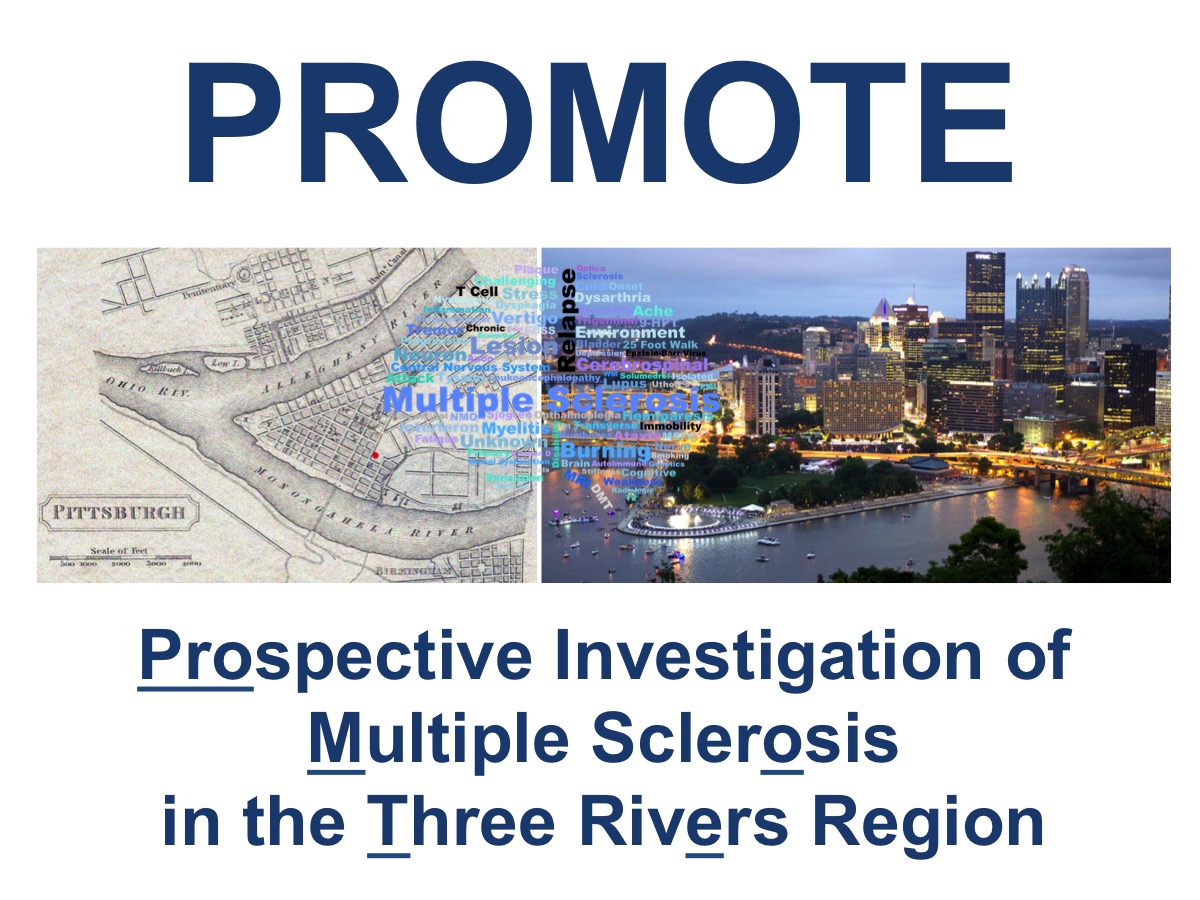 PROMOTE Study
PROMOTE Study
STUDY BASICS
Are you the parent of a child (ages 7-17) who has a diagnosis of multiple sclerosis or a related disorder? If so, your child may be able to participate in a research study to help understand the factors that explain the differences among multiple sclerosis (MS) patients. Study involves answering questionnaires, reviewing medical records, and participating in other optional research activities.
STUDY PURPOSE
Multiple sclerosis (MS) is a disease of the central nervous system that affects over 400,000 people in North America and over 7,000 people in Western Pennsylvania. People with MS can experience many different types of symptoms, and the course of the disease is often unpredictable. MS has no known cause and no cure, but there are medications that can help with the symptoms and course of the disease. The purpose of this study is to help researchers better understand what makes individuals with multiple sclerosis (MS) and related disorders differ from one another. Researchers hope their findings will allow for more personalized care for people with MS and related disorders in the future.
COULD THIS STUDY BE RIGHT FOR YOUR CHILD?
- Ages 7-17
- Diagnosed with multiple sclerosis or related disorder
WHAT PARTICIPANTS CAN EXPECT
Participation lasts up to 30 years. Your child will be asked to complete questionnaires online or in person, and you will be asked to provide access to your child’s medical record. You may also be asked to allow your child to participate in optional research activities that could include a blood draw, stool, urine and saliva samples, and other standard tests to gauge thought processes and movement.
IRB: STUDY19080007A
- Prospective Investigation of Multiple Sclerosis in the Three Rivers RegionMEET THE RESEARCHER

Zongqi Xia
Zongqi Xia, MD, PhD, is a neurologist and scientist, a Principal Investigator, and an Assistant Professor of Neurology, Biomedical Informatics and Bioengineering at the University of Pittsburgh. Dr. Xia’s research focuses on bringing precision medicine to people with multiple sclerosis and related disorders of neuroinflammation and neurodegeneration.
 https://pittplusme.org/study/836
https://pittplusme.org/study/836
